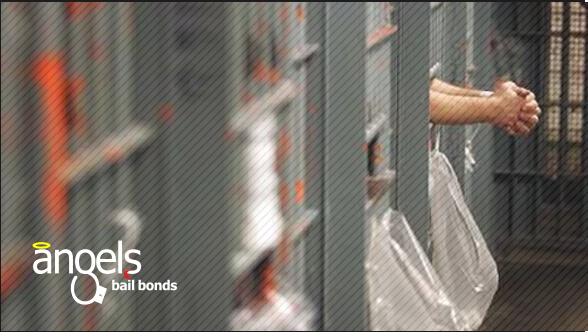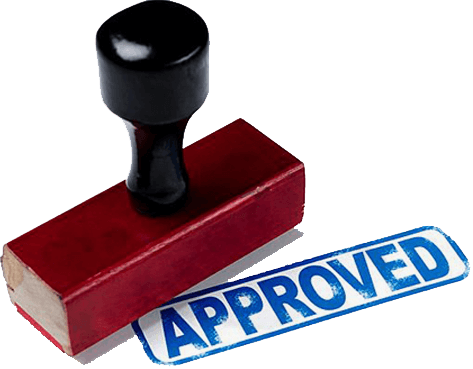[yelp-widget-pro id=”angels-bail-bonds-norwalk-2″ align=”left” reviews=”true”]
How Does Bail Work
The purpose of the bail system is to ensure that a defendant will be present for trial and any pretrial hearings they face.
The process of bailing a friend or family member out of jail, while initially daunting, is relatively simple.
When someone is arrested, the judge sets their bail. The amount is dependent upon their criminal history, the severity of the charges, if they are employed, and if they have ties to the community.
If the person cannot afford the bail, they will need the services of a bail bondsman. A small fee is paid to the bondsman, who then assumes the responsibility of the full bail amount.
How Does Bail Work
There is certain information that you will need when calling a bond agency. It will speed the process along if all the information is ready.
- The full name of the person in jail
- What jail they are in
- Their booking number
- The charges
- Any other information you can get
You may be wondering where you go to pay the bail. Depending on your proximity to the jail, the bondsman can usually meet you there. Some may be willing to come to your home. If you are in a different city, it can also be handled electronically or even over the phone.
Many different items of value can be used as collateral if the money for bail isn’t readily available. This can include property, jewelry, art, or anything else with enough worth.
After the percentage fee has been paid or the collateral signed over, the bondsman will post the bond. The person who has been arrested will then be released, though the time this takes can vary. It could be a short time, or it could take several hours.
Once the defendant has been released, the rules of being out on bail stipulate that he or she must appear for any court proceedings related to their case. They must also follow any other conditions that the bondsman has set.
If the defendant fails to appear in court or violates any of the mandates that were set forth, they can be returned to jail, and the full bail amount will be due.
They would also forfeit any collateral that had been signed over.
The bond obligation ends when the trial ends, whether the defendant is found innocent or guilty.

Approval
There is never a convenient time to have to deal with the bond process. Fortunately, we can usually approve your bond in as little as 15 minutes. The process involves answering some questions about the circumstances and collecting any other relevant information.
Payment Options. We accept all forms of credit card, cash, check, and even bitcoin.
Exclusive Financing Options. We offer a broad range of payment options, specific to each case. Call us to see what we can do for you.
Collateral. We accept collateral to secure against the debt obligation in case the bail is forfeited. Collateral can include motor homes, boats, property liens, jewelry, or anything with a value equal to the amount of the bond. Physical items are stored in a secure location until the case is resolved.

ABOUT
Angels Bail Bonds operates with more than 50 years of experience at our backs. Our reputation has been built on a solid foundation of uncompromised service, professionalism, and dependability. Posting bail can be a confusing and frustrating road if you don’t have the experience and knowledge to properly navigate around all the rules and regulations. Fortunately, our extensive knowledge of the California Jail system helps us secure our customer’s fast and timely release from jail each and every time.
We have physical Southern California locations which are conveniently located just minutes from major jails in Southern California including, the Los Angeles County Jail, Los Angeles Men’s Central Jail, West Valley Detention Center, Riverside County Jails, Orange County Jails, and Lynnwood Regional Jail, so an agent is never far!
Contact us anytime, day or night, 24 hours a day, 7 days a week by phone or email to secure your release.

Testimonial
FAQ
We provide you with free bail bond information and bail assistance 24 Hours a day. Let us share our know-how with you!
To speak with one of our licensed and knowledgeable bail bond agents call Angels Bail Bonds toll free: (562) 326-5650. You can also immediately reach a bail bonds agent by sending us an email at bailanswers@gmail.com
A bail bond is a contract between the Courts, the bail bondsman, and the indemnitor. Paying a bail bond secures the release of an accused person, who is usually referred to as the defendant.
The indemnitor is the person who physically signs the contract for the release of the defendant. After this, he or she is referred to as the signer or guarantor.
The Bail bondsman is the court’s assurance a defendant will be present for each subsequent court appearance. If the defendant misses a designated court appearance, Angels Bail Bonds will help the indemnitor locate and return the defendant to court.
If you can’t pay it in full, the bail agent is the key to your loved one’s release from jail. The bail bondsman takes on the responsibility of your bail amount as set by a judge during a bail hearing.
The cost for a Bail Bond is usually 10% of the amount ordered by the court. To get this initial amount a judge will weigh a variety of factors, including the nature and severity of the crime, if there are any previous convictions, assessment of a defendant’s ties to his or her community, and employment status.
Cash, check, and credit cards are all accepted methods of payment when posting bail. However, if are unable to get the money together we do offer low monthly payment options.
At Bail-Bonds.com we work with customers to write large bonds for little or *no money down. While the 10% cost of the original bond won’t change, we can approve customers to put no money down and make small monthly payments depending on their credit. Be sure to call and ask about our rebate program.
After a defendant’s release has been secured, the bail bond fee is fully earned regardless of whether he or she may have been improperly taken into custody, the bail was reduced, or had their case dismissed. While the 10% premium paid to your bail bondsman is a non-refundable surcharge but won’t be assessed until your loved one is successfully out of jail.
You can use real or personal property to secure the bail bond. You can sign on your house or rental property to secure the bail bond, the same way you would secure money borrowed from the bank. The main difference is that our paperwork is immediate, with no waiting and no documentation needed.
You do not need to provide your deed of ownership. We have state-of-the-art data services that provide instant proof of ownership. We also can use any personal property items such as bonds, credit cards, boats, airplanes, helicopters, motorcycles, expensive cars and other high-priced items.
One time we even took a winning lottery ticket for collateral! This story was written on the front page of the local newspaper.
With easy approval, you may qualify for a signature bond. A signature bond is where you sign on the bail bond agreement to secure the release of the defendant. This is done when a person has high credit scores and has shown that he has been responsible to his creditors in the past.
The collateral is returned once the bail agent receives a Bail Bond Exoneration or a Bail Bond discharge from the court. A “Bond Discharge” or “Bail Exoneration” is the document that officially releases the bail bondsman from further responsibility on the bond.
Getting released from jail depends on where the person is being held. Some jurisdictions like city jails, take an hour or so to release someone from jail. Other jurisdictions, like the county jails, run by the local sheriff, can average 2-8 hours for release. But it can take as long as 12-24 hours to be released from jail. Federal facilities generally take 2-3 hours for release.
The defendant, or any other person, may deposit the total sum mentioned in the bail order usually determined by the bail schedule. It is the practice of each jail to adopt a written policy permitting acceptance of cash, checks, cashier’s checks and money orders, upon conditions that tend to assure their validity.
Most jails have a maximum amount over which a personal check will not be accepted.
The judge or a magistrate may stay the release of a defendant if a peace officer or prosecutor files a sworn declaration demonstrating probable cause to believe the source of the consideration was feloniously obtained.
The release may also be stopped if the judge or magistrate has probable cause to believe the source was feloniously obtained. If probable cause exists, the defendant then bears the burden to prove that no part of the source was illegally obtained.
A defendant who prevails must be released on issuance of a bail bond as specified.
Bail-Bonds.com are experts in 1275 PC motions and has a 98% success rate of having the 1275 PC hold lifted.
Although the right to bail has constitutional recognition in the prohibition against excessive bail, bail is not always a matter of right. However, with certain exceptions a defendant charged with a criminal offense shall be released on bail.
Persons charged with capital crimes when the facts are evident, or the presumption of guilt great, are excepted from the right to be released on bail. However, a defendant charged with a capital crime, is entitled to a bail hearing in the trial court, to determine whether the facts are evident or the presumption great.
A crime is a capital offense if the statute makes it potentially punishable by death or life imprisonment, even if the prosecutor/ government have agreed not to seek the death penalty. It is presumed that the risk of flight of the defendant is great when he or she is facing death or life in prison without the possibility of parole.
Bail can be denied in some cases that do not involve a capital offense (murder, espionage, etc.) if the court finds it likely the defendant will do harm to his/her accusers. Based on sufficient facts or strong presumption, bail may be denied in the following instances:
- In felony cases involving extreme acts of violence
- Felony sexual assault offenses on another person
- If the court finds that there is a substantial likelihood that the defendant would cause harm to others upon being released
- If a court finds after reviewing available evidence that the accused has threatened another with great bodily harm or death, and there is a strong likelihood the accused would carry out that threat if released
The requirement of findings based on clear and convincing evidence implies that a hearing will be held on the issue. The likelihood a defendant would cause public harm would be determined on review of the circumstances of the case, and the history of the defendant. The decision to grant or deny bail is subject to review on petition by the defendant.
The amount of the bail is primarily within the discretion of the judge or magistrate, with only two general limitations:
- First: The purpose of bail is not to punish, but only to secure the appearance of the defendant, and it should be fixed with that in mind.
- Second: Excessive bail, not warranted by the circumstances is not only improper, but a violation of constitutional rights. In fixing the amount of the bail, the court takes into consideration the seriousness of the charge, the defendant’s previous criminal record, and the probability of the defendant appearing at the trial or hearing.
- Additionally: If public safety is an issue, the court may make an inquiry where it may consider allegations of injury to the victim, threats to the victim or a witness, the use of a deadly weapon, and the defendant’s use or possession of controlled substances.
A judge or magistrate setting bail, other than the amount called for in the bail schedule, must state on the record the reasons and address the issue of threats made against a victim or a witness. The court must also consider evidence offered by the detained person regarding ties to the community and ability to post bond.
Bail Bonds are good for 1 year. The bail bond is renewable at the end of the year if the bail bond is not exonerated. When the bond is exonerated the bail agency will release the indemnitors liability. Exoneration normally occurs when the proceedings are terminated in some way or on the return of the defendant to custody. If convicted, the defendant appears for sentencing. If sentenced to imprisonment the defendant is committed to the custody of the sheriff, and the liability of the bail bond terminates.
A defendant who is convicted and given probation is released from custody, and the bail must be exonerated.





